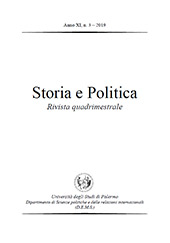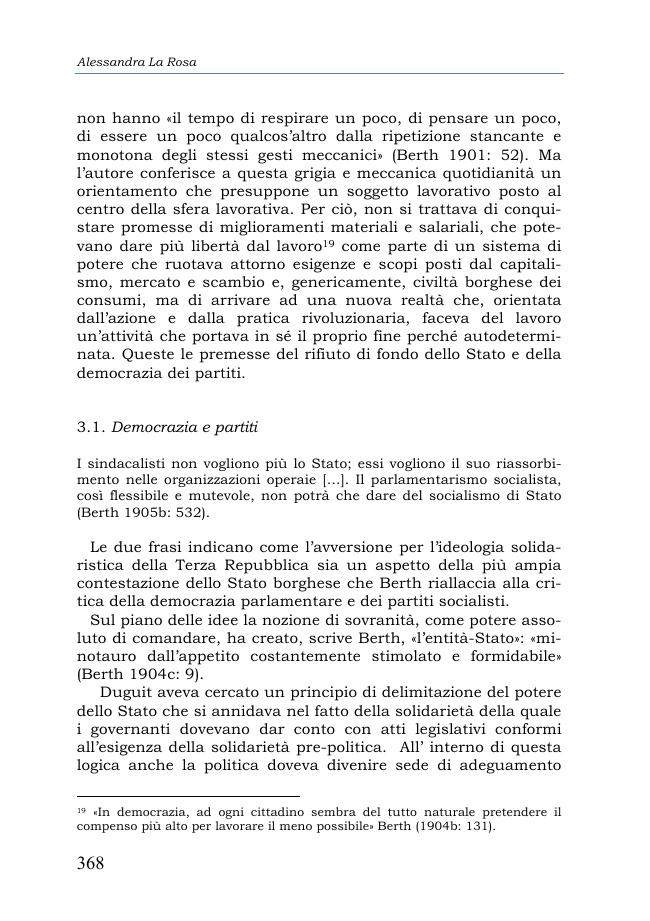Lavoro e libertà : declinazioni nella Francia della Terza Repubblica
347-389 p.
The article aims to reconstruct the relationship between liberty and work, as it was theorised by Léon Duguit (1859-1928) and Édoaurd Berth (1875-1939) in the France of the Third Republic. The two political theorists had very different intellectual biographies, yet they shared a criticism of liberalism and the recognition of the importance of community association. To understand the two political thinkers' theoretical position concerning labour, this article connects it to their global view of society and the normative values of the French State. Duguit focuses on mutual solidarity as the symbolic generator, within a capitalistic economy, to redefine the concepts of liberty of work and liberty at work. He therefore idealizes cooperation between classes. By contrast, Berth believes in the necessity to refound society and its economy. He believes in emancipation, of the individual and of working class, as a form of self-government and hence idealizes autonomous factory worker. [Publisher's text].
Forma parte de
Storia e politica : rivista quadrimestrale : XI, 3, 2019-
Artículos del mismo número (disponibles individualmente)
-
Información
ISSN: 2037-0520
KEYWORDS
- Duguit, Berth, Work, Autonomous Workers'Associations, Solidarity, Self-government



